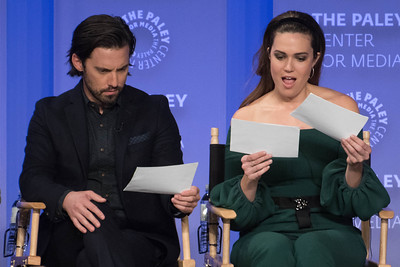Is “This is Us” emotionally manipulating its audience?


With the fifth season of This Is Us set to premiere next Tuesday, fans are eagerly awaiting the answers to many questions. Will Randall and Kevin reconcile after their huge fight? Will a romantic relationship form between Madison and Kevin? And what is going on in those scenes from the future?
This Emmy-nominated NBC drama follows the lives of the endearing and complicated Pearson family all while capturing the hearts of viewers around the world.
And while This Is Us is definitely heartwarming and relatable, it is also notorious for its ability to make viewers cry—so much so that CTV actually advertises the show’s Tuesday timeslot as “Tissue Tuesday.”
Of course, as with any show about a family, they’re going to be faced with the difficult parts of life, but as the past four seasons of This Is Us have come and gone, have the show’s portrayals of tragedy gone too far?
Fans of the show might remember that in 2018 This Is Us creator Dan Fogelman directed a movie called Life Itself. Critical reviews and tweets alike referred to the film as “tragedy porn” due to the fact that its plot revolves largely around imposing extremely tragic events on a group of unrelated characters—until their pasts bring them all together at the very last second, of course.
Now, with the fifth season of This Is Us about to start, it’s easy to see that the show is headed down a very similar path. Over the course of the previous season, it felt as though the writers were just packing as many life complications as possible into the show.
As if the Pearsons didn’t already have enough to deal with, the most recent season saw the family being faced with Alzheimer’s, permanent vision loss, unexpected pregnancy and more, all on top of the deaths, addictions and illnesses that were already a part of their lives.
And while it’s certainly possible for one family to be faced with a lot of challenges over a span of time, at what point does a show move away from capturing a realistic life to capitalizing off of tragedy in order to get a reaction and further the dedication of their viewership?
This is where the show’s reputation as a tearjerker comes into question. Crying is regarded as a quintessential part of the This Is Us viewing experience—and not just because the show is really sad.
Often, viewers will cry because the show has represented something that they can relate to. Consider Randall’s struggle to discover his identity as a Black person raised in a majority-white environment.
Or Kate’s struggle with her relationship with food or Tess’ struggle to decide if she should come out as gay at school. Many viewers will absolutely see themselves in these characters and we cry because they touch a deeply personal experience within us.
But by continuously adding new complications and challenges into the Pearsons’ lives, is the show innocently trying to represent “real life” or is it sneakily trying to attract more viewers by giving us more possible scenarios to relate to?
And the increasing complexity of the Pearson family can quickly become problematic. With so many challenges at hand, there simply won’t be enough time in the show to handle each issue with the care and thoughtfulness that it deserves. The show then risks tokenizing these issues and therefore turning the characters into their issues.
So, instead of being a show about a family that’s had some hard times but who ultimately still have well-rounded lives, it’s becoming a show about a family whose entire lives are their tragedies.
As of late, the show has also been teasing viewers with scenes from the future, where Rebecca is on her deathbed and certain members of the family are or are not there with her.
These scenes are definitely meant to spark intrigue about the upcoming season, but they also encourage the audience to anticipate what tragedy will hit the Pearson family next—which walks a very thin, morbid line.
You could say that these family challenges are just what the show is about. If nothing ever happened to the Pearsons, there wouldn’t be a show.
And really, This Is Us is not unlike a soap opera in that there’s always something new and dramatic happening to the characters. But as a primetime, major network television series, it has an important responsibility to carefully represent the very real difficulties of the Pearson family.
Ultimately, even though This Is Us is devastatingly emotional, the show keeps us watching not only because we see ourselves in it, but also because we are inspired by its thought-provoking—albeit somewhat corny—insights about life.
But when you sit down to watch the season premiere next week, I think it’s worth taking a step back from the Pearson family universe to ask, “is this actually a good show or is it just good at making us cry?”


